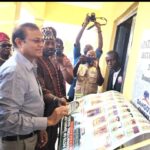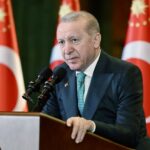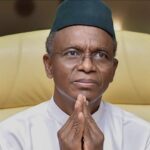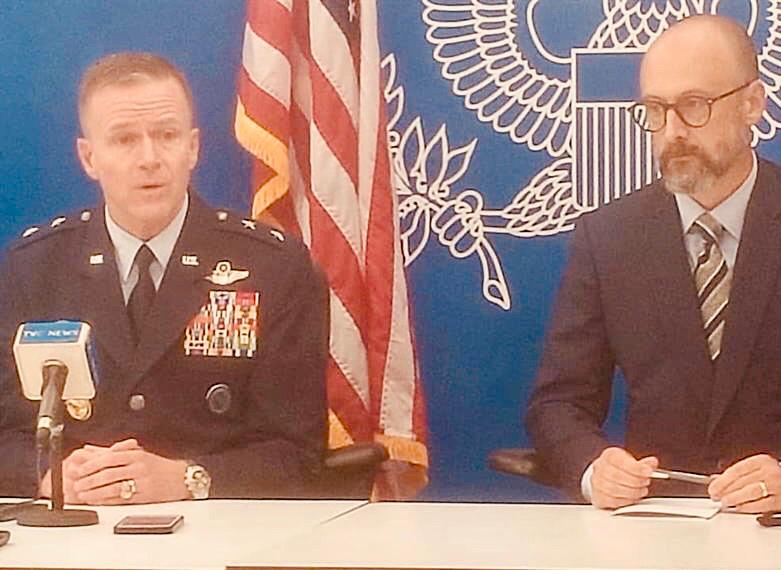By Mark Longyen
The U.S. government is committed to deepening bilateral security cooperation with ECOWAS.
Maj.-Gen. Kenneth Ekman, U.S. Africa Command (AFRICOM), West Africa Coordination Element Lead, Department of Defence, stated this in Abuja.
The News Agency of Nigeria (NAN) reports that the roundtable was for Ekman to explain the purpose of his visit to Nigeria and the outcome of his engagements with government officials.
He stressed that the U.S. shares the bloc’s concerns about spiraling violent extremism and democratic governance decline in the subregion.
“With regards to how ECOWAS proceeds, as they proceed, the U.S. military and broader, the U.S. government, do share the concerns that they have expressed.
“That is, with regards to the decline in democratic governance that is playing out particularly in the Sahel, which ultimately comes down to ECOWAS.
“Where we can help ECOWAS, however they choose to proceed, is bilateral security cooperation with ECOWAS members, so that’s our approach,” he said.
The U.S. Air Force General explained that countering terrorists militarily was tantamount to merely addressing the symptom of a problem.
According to him, the best approach is to identify and deal with the underlying causes and the foundational reasons that cause terrorism to exist and perpetuate.
He listed some of the causes to include issues of governance all the way down to the local level, access to services, competition for limited resources, and climate change.
“The military component of what we do here with our partners sits on a solid foundation of U.S. diplomacy, of U.S. mutually beneficial trade and investment, and on top of development humanitarian assistance, which continues throughout.
“And so, when you look at the AES, the so-called AES states in the Sahel, although they are currently being led by coup governments, there’s been no reduction in our humanitarian assistance going to the people in those countries.
“That’s just reflective of our continued commitment to work on the underlying causes,” he said.
Ekman said that following the withdrawal of U.S. military forces from Niger Republic, his country was working to address the challenges by redistributing them among other ECOWAS member states.
“And then for us, the reason I’m here talking to you today and the reason that we’re redistributing U.S. forces in West Africa is because we remain committed to West African security.
“Countries where we’re having conversations, countries where we have started putting some forces, include Cote d’Ivoire, Benin, we have some U.S. forces there now.
“I’m going to Accra (Ghana) next. I’m keenly interested in what their authorities have to say. It’s got to be right for the partner.
“And then I was just in N’Djamena (Chad) a couple of weeks ago and we talked about the next phase for the posture of U.S. forces.
“In all cases, we’re starting with just small elements, small special operations teams that provide advice and assistance and training to the host nation forces,” he said.
Responding to a question on why the scourge of violent extremism had surged in Africa in spite of the establishment of AFRICOM since 2007, he said it was not about security per se as there was a broader demographic trend.
“The insecurity is a result of underlying conditions, and I’ve named some of those. And so that is my view on why the trend has been the way it is.
“I can confidently say that U.S. presence and partnership does not exacerbate the violent extremist organisation problem in Africa.
“And, increasingly, the epicentre, the global epicentre of violent extremist organisations is shifting to Africa,” he noted.
Ekman explained that AFRICOM’s operational headquarters was sited in Stuttgart, Germany, instead of Africa because there was no existing infrastructure for it and significant concerns were raised about how it would over-militarise the continent.
“In principle, I think it would be great to have the AFRICOM headquarters on the African continent,” he added.(NAN)(www.nannews.ng)
edited by Sadiya Hamza












